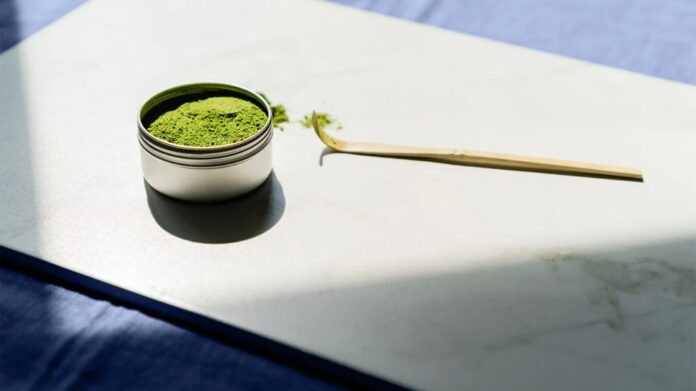
- Depression is a widespread mood disorder. Researchers are working to understand alternative treatment options for depression, and their underlying mechanisms.
- Levels of the neurotransmitter dopamine may play a role in the development of depression.
- A new study found that matcha tea may have antidepressant-like effects in mice mediated through the dopaminergic systems in the brain.
Depression is a common mood disorder, affecting
Researchers are working to understand complementary and alternative therapies that may aid in treating depression.
A recent study published in the journal Nutrients looked at the potential antidepressant effect of matcha tea powder and the underlying mechanisms involved.
They found that matcha tea had antidepressant-like effects in a mouse model of depression.
The exact
Researchers are still working to understand the underlying components of depression, many of which are still unclear. One area of interest is how neurotransmitters like serotonin and dopamine impact depression.
Dopamine is a chemical messenger that impacts mood and motivation, and experts believe that dopamine levels may contribute to depression.
Licensed psychologist David Tzall, not involved in the current research, explained the interest in dopamine to Medical News Today:
“Dopamine is a neurotransmitter that plays a key role in the brain’s reward and motivation pathways […] [In depression,] part of the reason dopamine is believed to play a role is that with impairment in dopamine, there are not enough brain chemicals that are involved with positive rewards and motivation. Impair dopamine, and you have less motivated, less positively reinforced and rewarded individuals. Lack of motivation, interest, and a feeling of lethargy are associated with depression. Moreover, a sad mood can be attributed to a person not being properly reinforced, acknowledged, or rewarded.”
This particular study looked at the effectiveness of matcha tea as a treatment for depression in mouse models. The researchers conducted their experiment on mice that they had placed in social isolation to see how this impacted the effectiveness of the treatment.
Moreover, the researchers compared the effects in two different genetic groups of rodents:
After a week in isolation, mice from each group received an administration of matcha tea powder. Whilst it is not possible to replicate the complexity of depression in a mouse model, the researchers used a test called the
In the stress-susceptible C57BL/6J strain, matcha tea was associated with an improvement in depression-like symptoms in the tail suspension test.
In contrast, matcha tea had no impact on the stress-resistant BALB/c mice.
The researchers then examined how the matcha tea powder impacted the mice’s brains. They found that matcha tea appeared to impact systems of dopamine in the C57BL/6J mice.
Dr. James Giordano, Pellegrino Center professor of neurology and biochemistry at Georgetown University Medical Center, not involved in the study, explained to MNT:
“This study, which examined specific, genetic strains of mice that expressed differential sensitivity to stress, revealed that matcha tea extract exerts at least some of its neurological and psychotropic effects through interaction with the dopamine system, and its pathways to the prefrontal cortex and nucleus accumbens, which are involved in cognitive, emotional, and behavioral aspects of depression.”
These results indicate that the impact of matcha tea has to do in part with its influence on certain areas of the brain.
However, the effectiveness appears to depend on actual mental state, as the matcha tea powder only helped the C57BL/6J mice who were under high mental stress because they had been socially isolated.
The results of the study suggest matcha tea powder has the potential to be a useful avenue for further research in the quest for new treatments for depression.
Tzall noted that “[r]esults like this are always encouraging regarding finding natural or alternative means of alleviating depression or other mental health issues.”
“Just as is the case with medication, this will not be a panacea to depression or anxiety,” he nonetheless cautioned. “It might serve as an adjunctive form of treatment.”
Dr. Giordano offered a similar view and explained that “[m]atcha extract may be useful and have value in reducing certain signs and symptoms of depression that appear to be mediated, at least, in part by the brain’s dopamine system.”
However, animal studies are often a critical but limited step in data collection. Because the study was performed in mice, a lot more data is required to understand how applicable the results are to humans.
Tzall explained:
“Studies like this need to be balanced with caution as this needs to be replicated and tried in humans. If, and it is a big ‘if,’ it pans out that this can actually help decrease depression, it will be a natural product that is cheap and abundant, and accessible to a lot of people.”
Dr. Giordano noted that, in terms of continued research, “[i]t would be useful, and of value to further determine the role of dopamine in stress susceptibility, and the pathogenesis and expression of certain types of depression.”
“In this light, it would also be important to further investigate the role of matcha extract, as well as other potential candidate substances, to modulate the dopamine system in ways that could be useful to sustaining health and wellness, and treating certain signs and symptoms of various neurological and psychiatric disorders,” he added.
Hits: 13











